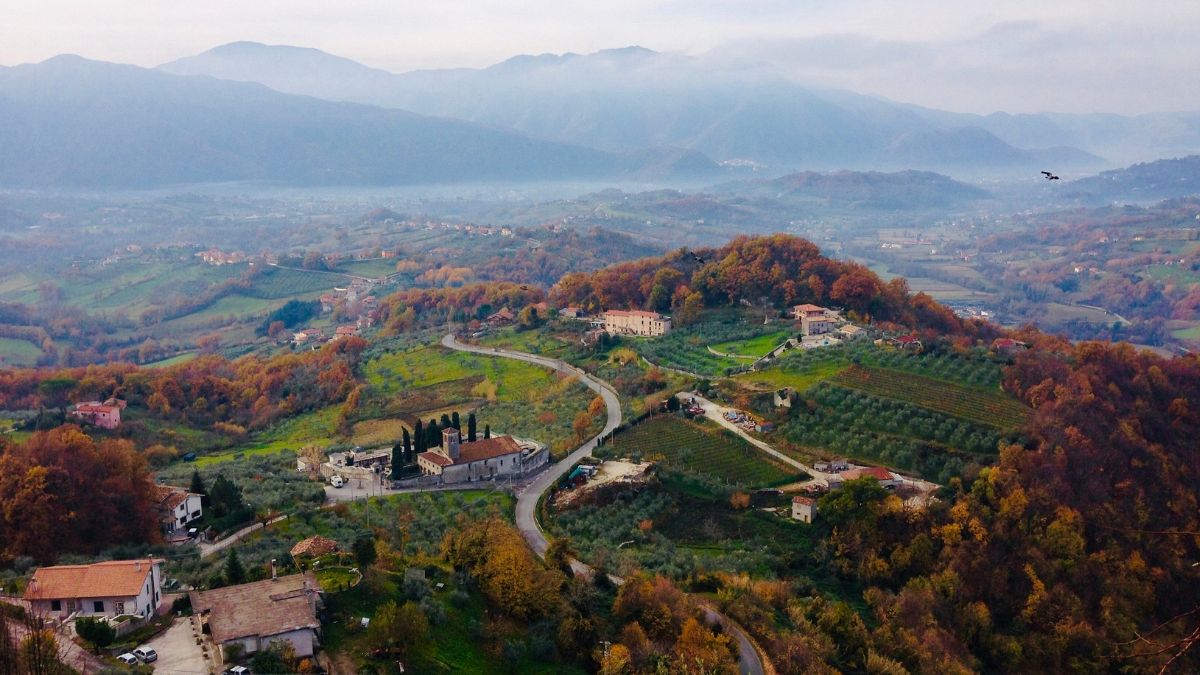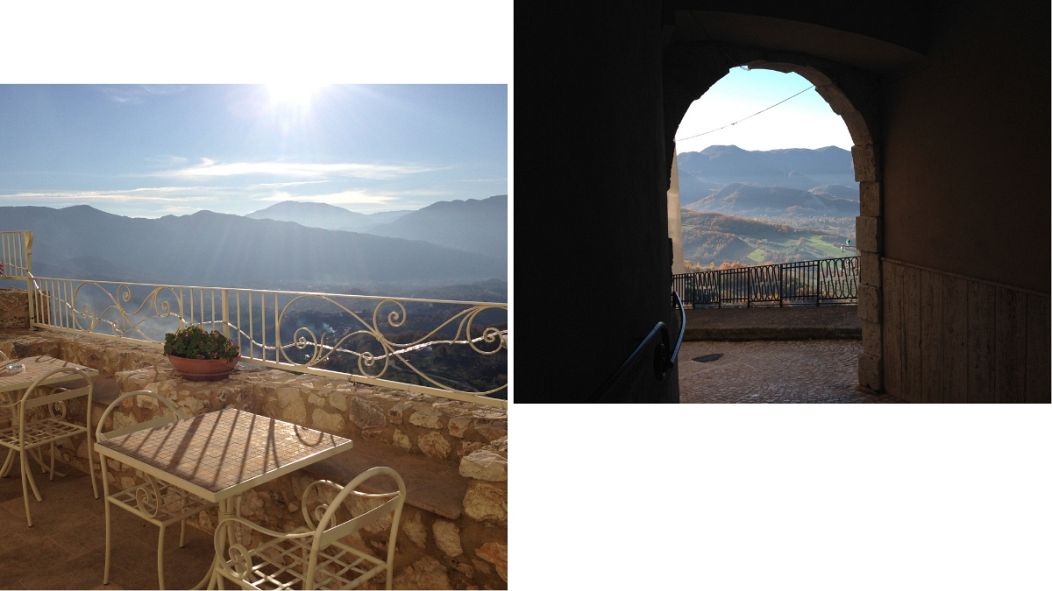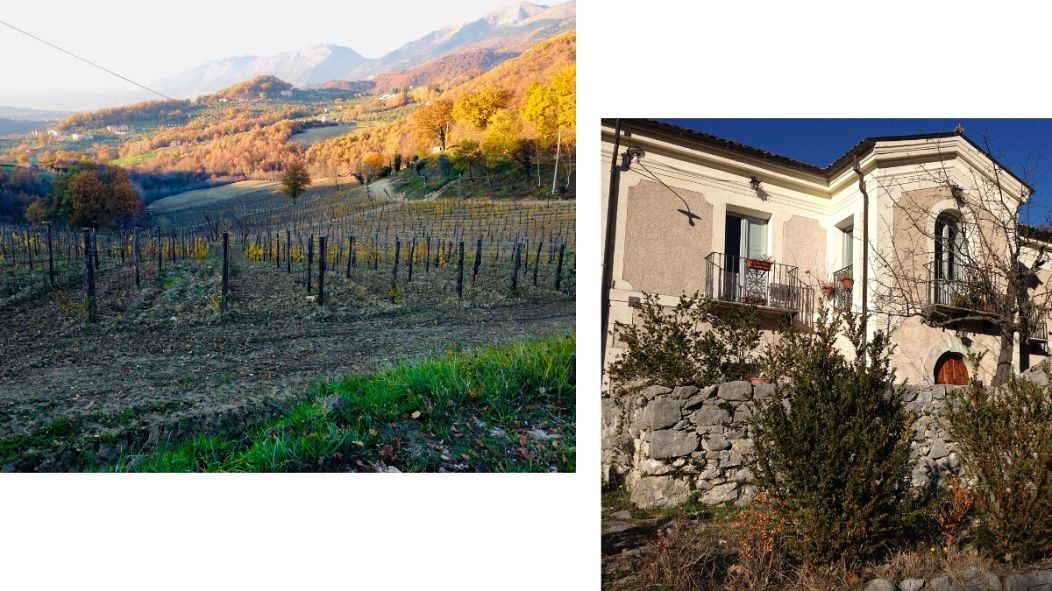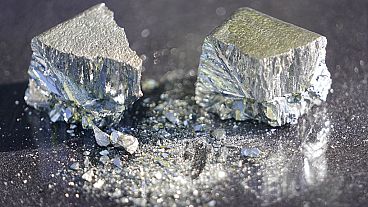Environmental-friendly farms and luxury resorts are popping up in one of the most unspoiled corners of the Italian countryside
The first time I tasted Maturano grapes I ended up popping a whole cluster into my mouth. They are simply addictive.
Sweet, tiny, the colour of translucent amber when the sun rays shine through, I had no idea they were not meant to be devoured as a lavish fruit dish. Surprisingly, Maturano grapes are premium vine grapes, used to make a delicate white wine ideal to tackle the summer heat.
These special vineyards, originally planted by the ancient Romans, are being brought back from the grave in Ciociaria. This wild mountain area south of Rome is living an eco-conscious revival thanks to many descendants of local immigrants who in the early 1900s fled to England and Scotland in search of a brighter future.
Environmental-friendly biological farms and luxury resorts
Their grandchildren have now come back to their homeland to open environmental-friendly biological farms and luxury resorts. The whole area is dubbed ‘Little England’. It's funny to see Italian-looking people walk their dog, talking to each other in English and saying hello instead of 'buongiorno' to the old shepherd sitting at the end of the street, by now accustomed to such foreign language.
Sofia Di Ciacca, a Scots proud of her Ciociaria origins, is in charge of running her ancestors' recovered rural hamlet. "It's an amazing job, I've always had a penchant towards winemaking and after studying hard the necessary know-how, I can now dedicate myself to this healthy, great wine".
Maturano, hailed by the great poet Virgil in his works and gone lost in the last 50 years, is a high quality wine produced without the use of any pesticides or synthetic materials. The new vineyards are currently in the organic certification conversion process. The grapes are picked solely by hand, no tractors ever cross the neat, slightly declining slopes. The fertile soil is pure given it’s been untouched for decades, far from any modern chemical poisoning substance.
Italian organic winery
The organic winery, which only uses natural products to clean the rooms and purify the wine, is being built into a hillside. The use of egg-shaped concrete tanks allow the wine to breathe as much as possible. Friends and relatives from the UK fly down just to take part in the vendemmia party, aka grape harvest. Like in the old days when families were small-scale economies, everyone does a fair share of grape picking as soon as the sun rises.
The farm, as many others in the area, also makes biological acacia honey alongside fig plum and mulberry jams from its rich orchards. The award-winning extra virgin olive oil is handpicked early in the season when the olives are still bright green and cold pressed at organic mills. Black pigs, renown for their high quality meat, are left to freely roam out in the open in a protected space.
The ‘green’ soul of this Little England perfectly matches Ciociaria’s pristine landscape of snowy peaks, dense woods and brownish meadows. It's an idyllic, bucolic spot to discover and enjoy, an off-the-beaten track that gravitates around the Eternal City.
Abruzzo’s National Park
The rolling hills, part of Abruzzo’s National Park, are dotted with ashrams, monasteries, abandoned cottages and grazing sheep. Fresh air, silence and a stunning panorama make Ciociaria one of Italy's most unspoiled corners, like Tuscany was some 20 years ago before the arrival of mass tourism. Bear-watching, porcini mushroom hunts and paragliding are among the top attractions.
The local architecture has also been redesigned, with an elegant British touch. Crumbly medieval dwellings have been turned into yellow and pink Victorian-style mansions while luxury eco-resorts have been built within ancient village stone walls.
Sofia's family will soon open a foundation for food excellence, a sort of agronomy university for young people where they learn to recover lost vineyards, plantations, traditional animal breeding techniques and produce to boost the local economy. Fresh sheep ricotta and pecorino cheese making is an important part of the training, just like knowing how to bake exquisite homemade bread and pizza sticking to genuine, granny recipes of old times.
The ultimate goal of the food academy, based on a ‘healthy’ link between agriculture and gastronomy, is to avoid that Ciociaria's small villages turn into ghost places. Such a crusade is all about preserving the past for a better future and it can only be achieved by going back to the ‘roots’.
Writer: Silvia Marchetti





